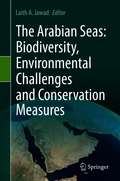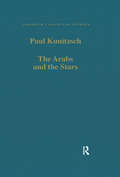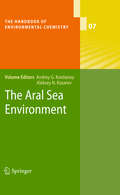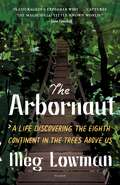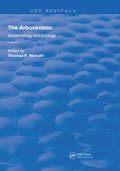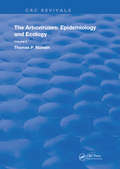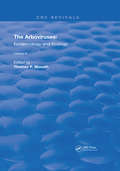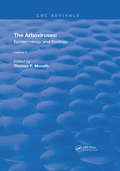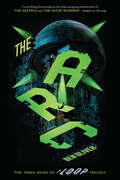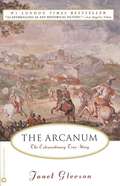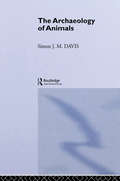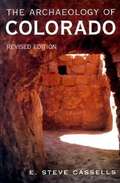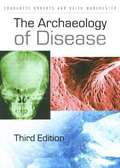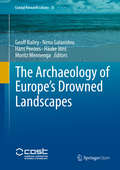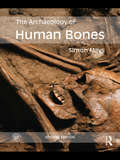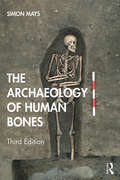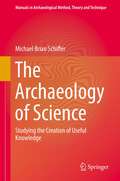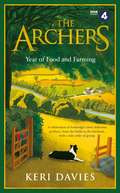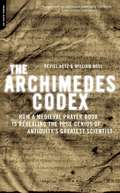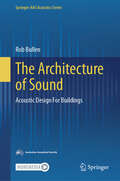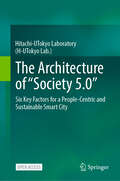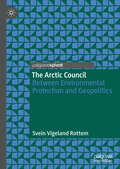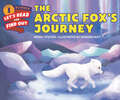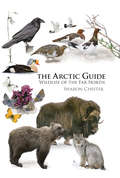- Table View
- List View
The Arabian Seas: Biodiversity, Environmental Challenges and Conservation Measures
by Laith A. JawadThe Arabian Seas Marine Region encompasses marine areas from Djibouti to Pakistan, including the northern part of Somalia, the Red Sea, the Arabian/Persian Gulf, and parts of the Arabian Sea. Human pressures on the coastal and marine environments are evident throughout the region, and have resulted in harmful environmental effects. Oil and domestic, urban and industrial pollutants in several areas of this part of the world have caused local habitat degradation, eutrophication and algal blooms. Further, coastal landfill, dredging, and sedimentation, as well as nutrient and sediment runoff from phosphate mining, agriculture and grazing, and reduction in freshwater seepage due to groundwater extraction are all contributing to the degradation of coastal environments. This book discusses aspects not covered in other books on the region, which largely focus on marine biodiversity, and examines several environmental challenges that are often ignored, but which have a significant impact on the environment. Evaluating the status quo, it also recommends conservation measures and examines the abiotic factors that play a major main role in the environmental changes. Lastly, the book addresses the biodiversity of the area, providing a general context for the conservation and management measures discussed.
The Arabs and the Stars: Texts and Traditions on the Fixed Stars and Their Influence in Medieval Europe
by Paul KunitzschThe influence of Arabic-Islamic science on European astronomy is still evident in the number of terms and star names which derive from the Arabic. These articles examine what the Arabs - and other peoples of the Islamic world - knew about the fixed stars and the constellations, and the astrological traditions they associated with them. Professor Kunitzsch shows how the early folk astronomy of the Arabs was radically altered, without being swept away, by the discovery of ancient Greek, also Indian and Persian, sources; by far the most important of these was the Almagest of Ptolemy. This knowledge was then transmitted to medieval Europe, to Byzantium and, especially, to Spain, as the articles go on to describe, and was a vital factor in stimulating the development of scientific thought in the West.
The Aral Sea Environment
by Aleksey N. Kosarev Andrey G. KostianoyThe environmental problems in the Aral Sea region continue to worsen. This volume presents the information gathered to date on various aspects of the Aral Sea environment. Specialists from institutions in Russia, Uzbekistan, France, Germany and the USA cover different topics - from the paleohistory and archaeology of the region, to the present physical, chemical and biological state of the sea, and the analysis of the runoff and deltas of the Amudarya and Syrdarya rivers. Further, the regional climate change is discussed and reasons for the progressing environmental crisis and the socio-economic problems in the region are highlighted. The Aral Sea Environment is addressed to scientists working in the fields of physical oceanography, marine chemistry, biology, and the environmental sciences.
The Arbornaut: A Life Discovering the Eighth Continent in the Trees Above Us
by Meg Lowman“An eye-opening and enchanting book by one of our major scientist-explorers.” —Diane Ackerman, author of The Zookeeper’s WifeNicknamed the “Real-Life Lorax” by National Geographic, the biologist, botanist, and conservationist Meg Lowman—aka “CanopyMeg”—takes us on an adventure into the “eighth continent” of the world's treetops, along her journey as a tree scientist, and into climate actionWelcome to the eighth continent!As a graduate student exploring the rain forests of Australia, Meg Lowman realized that she couldn’t monitor her beloved leaves using any of the usual methods. So she put together a climbing kit: she sewed a harness from an old seat belt, gathered hundreds of feet of rope, and found a tool belt for her pencils and rulers. Up she went, into the trees. Forty years later, Lowman remains one of the world’s foremost arbornauts, known as the “real-life Lorax.” She planned one of the first treetop walkways and helps create more of these bridges through the eighth continent all over the world. With a voice as infectious in its enthusiasm as it is practical in its optimism, The Arbornaut chronicles Lowman’s irresistible story. From climbing solo hundreds of feet into the air in Australia’s rainforests to measuring tree growth in the northeastern United States, from searching the redwoods of the Pacific coast for new life to studying leaf eaters in Scotland’s Highlands, from conducting a BioBlitz in Malaysia to conservation planning in India and collaborating with priests to save Ethiopia’s last forests, Lowman launches us into the life and work of a field scientist, ecologist, and conservationist. She offers hope, specific plans, and recommendations for action; despite devastation across the world, through trees, we can still make an immediate and lasting impact against climate change. A blend of memoir and fieldwork account, The Arbornaut gives us the chance to live among scientists and travel the world—even in a hot-air balloon! It is the engrossing, uplifting story of a nerdy tree climber—the only girl at the science fair—who becomes a giant inspiration, a groundbreaking, ground-defying field biologist, and a hero for trees everywhere.Includes black-and-white illustrations
The Arboviruses: Epidemiology and Ecology (Routledge Revivals #1)
by Thomas P. MonathFirst Published in 1988, this five volume set documents the transmission and growth of Arthropod born viruses. Carefully compiled and filled with a vast repertoire of notes, diagrams, and references this book serves as a useful reference for Students of Epidemiology, and other practitioners in their respective fields.
The Arboviruses: Epidemiology and Ecology (Routledge Revivals #2)
by Thomas P. MonathFirst Published in 1988, this five volume set documents the transmission and growth of Arthropod born viruses. Carefully compiled and filled with a vast repertoire of notes, diagrams, and references this book serves as a useful reference for Students of Epidemiology, and other practitioners in their respective fields.
The Arboviruses: Epidemiology and Ecology (Routledge Revivals #4)
by Thomas P. MonathFirst Published in 1988, this five volume set documents the transmission and growth of Arthropod born viruses. Carefully compiled and filled with a vast repertoire of notes, diagrams, and references this book serves as a useful reference for Students of Epidemiology, and other practitioners in their respective fields.
The Arboviruses: Epidemiology and Ecology (Routledge Revivals #5)
by Thomas P. MonathFirst Published in 1988, this five volume set documents the transmission and growth of Arthropod born viruses. Carefully compiled and filled with a vast repertoire of notes, diagrams, and references this book serves as a useful reference for Students of Epidemiology, and other practitioners in their respective fields.
The Arc (The Loop)
by Ben OliverIn the final installment of critically acclaimed Loop trilogy, all of humanity hinges on the greatest escape yet.All hope has seemingly been executed.Despite the fact that the truth of their oppressive leaders had been revealed to them, the crowd of Alts cheer as life drained from the boy. But one Alt, Chester “Chilly” Beckett, did not celebrate; his eyes have been opened to the truth. The corpse is dragged away, but Chester remains determined to find out what is going on in the Laboratory on the 65th floor.There, he'll find three subjects tortured in an attempt to extract a regeneration formula… and one of the subjects is, impossibly, a face he never thought he'd seen again. A bold escape sets in motion a race against time as Happy’s plans to release planet-eating nano-bots into the world draw nearer. The Loop team must reassemble, survive Happy’s final attempts to rid the world of the rebels, and figure out how to halt the apocalypse before humanity is destroyed.
The Arcanum: The Extraordinary True Story
by Janet GleesonAn extraordinary episode in cultural and scientific history comes to life in the fascinating story of a genius, greed, and exquisite beauty revealed by the obsessive pursuit of the secret formula for one of the most precious commodities of eighteenth century European royalty-fine porcelain.
The Archaeology of Animals
by Simon J. DavisEver since the discovery of fossil remains of extinct animals associated with flint implements, bones and other animal remains have been providing invaluable information to the archaeologist. In the last 20 years many archaeologists and zoologists have taken to studying such "archaeofaunal" remains, and the science of "zoo-archaeology" has come into being. What was the nature of the environment in which our ancestors lived? In which season were sites occupied? When did our earliest ancestors start to hunt big game, and how efficient were they as hunters? Were early humans responsible for the extinction of so many species of large mammals 10-20,000 years ago? When, where and why were certain animals first domesticated? When did milking and horse-riding begin? Did the Romans influence our eating habits? What were sanitary conditions like in medieval England? And could the terrible pestilence which afflicted the English in the seventh century AD have been plague? These are some of the questions dealt with in this book. The book also describes the nature and development of bones and teeth, and some of the methods used in zoo-archaeology.
The Archaeology of Colorado
by E. Steve CassellsArchaeologist Steve Cassells details the prehistory of Colorado from the Paleo-Indian mammoth and bison hunters through the Archaic, Fremont, and Plains Woodland peoples to the Anasazi of the southwest and the historic Utes and Plains Indians. The author draws on unpublished reports, personal communications, and exhaustive research in the printed literature to make this a book in which even specialists will find new and exciting material. Significant sites from every cultural stage and every part of the state are examined.
The Archaeology of Disease (Third Edition)
by Charlotte Roberts Keith ManchesterThe Archaeology of Disease shows how the latest scientific and archaeological techniques can be used to identify the common illnesses and injuries from which humans suffered in antiquity. The book contains information on congenital, infectious, dental, joint, endocrine, and metabolic diseases. This fully revised third edition has been updated to and encompasses rapidly developing research methods of in this fascinating field.
The Archaeology of Europe’s Drowned Landscapes (Coastal Research Library #35)
by Hans Peeters Geoff Bailey Nena Galanidou Hauke Jöns Moritz MennengaThis open access volume provides for the first time a comprehensive description and scientific evaluation of underwater archaeological finds referring to human occupation of the continental shelf around the coastlines of Europe and the Mediterranean when sea levels were lower than present. These are the largest body of underwater finds worldwide, amounting to over 2500 find spots, ranging from individual stone tools to underwater villages with unique conditions of preservation. The material reviewed here ranges in date from the Lower Palaeolithic period to the Bronze Age and covers 20 countries bordering all the major marine basins from the Atlantic coasts of Ireland and Norway to the Black Sea, and from the western Baltic to the eastern Mediterranean. The finds from each country are presented in their archaeological context, with information on the history of discovery, conditions of preservation and visibility, their relationship to regional changes in sea-level and coastal geomorphology, and the institutional arrangements for their investigation and protection. Editorial introductions summarise the findings from each of the major marine basins. There is also a final section with extensive discussion of the historical background and the legal and regulatory frameworks that inform the management of the underwater cultural heritage and collaboration between offshore industries, archaeologists and government agencies. The volume is based on the work of COST Action TD0902 SPLASHCOS, a multi-disciplinary and multi-national research network supported by the EU-funded COST organisation (European Cooperation in Science and Technology). The primary readership is research and professional archaeologists, marine and Quaternary scientists, cultural-heritage managers, commercial and governmental organisations, policy makers, and all those with an interest in the sea floor of the continental shelf and the human impact of changes in climate, sea-level and coastal geomorphology.
The Archaeology of Human Bones
by Simon MaysThe Archaeology of Human Bones provides an up to date account of the scientific analysis of human skeletal remains from archaeological sites. This completely revised edition reflects the latest developments in scientific techniques for studying human skeletons and the latest applications of those techniques in archaeology. In particular, the sections on ancient DNA and bone stable isotopes have been comprehensively updated, and two completely new chapters have been introduced, covering metric study of the postcranial skeleton and ethical dimensions of the study of human remains. The Archaeology of Human Bones introduces students to the anatomy of bones and teeth, utilising a large number of images. It analyzes the biasing effects of decay and incomplete recovery on burial data from archaeological sites, and discusses what we may learn about burial rites from human remains. Subsequent chapters focus on demographic analysis of earlier populations, normal skeletal variation, disease and injury, isotopic and DNA analysis of bone, the study of cremated bone and ethical aspects of working with ancient human remains. Current scientific methods are explained, alongside a critical discussion of their strengths and weaknesses. The ways in which scientific analyses of human skeletal remains can contribute to tackling major archaeological or historical issues is illustrated by means of examples drawn from studies from around the world. Technical jargon is kept to a minimum, and each chapter contains a summary of the main points that a student should grasp and a list of further reading targeted to enable students to follow up major issues covered in the book. Featuring case studies from around the world and with copious illustrations, The Archaeology of Human Bones continues to be a crucial work for students of archaeology.
The Archaeology of Human Bones
by Simon MaysThe Archaeology of Human Bones provides an up to date account of the analysis of human skeletal remains from archaeological sites, introducing students to the anatomy of bones and teeth and the nature of the burial record. Drawing from studies around the world, this book illustrates how the scientific study of human remains can shed light upon important archaeological and historical questions. This new edition reflects the latest developments in scientific techniques and their application to burial archaeology. Current scientific methods are explained, alongside a critical consideration of their strengths and weaknesses. The book has also been thoroughly revised to reflect changes in the ways in which scientific studies of human remains have influenced our understanding of the past, and has been updated to reflect developments in ethical debates that surround the treatment of human remains. There is now a separate chapter devoted to archaeological fieldwork on burial grounds, and the chapters on DNA and ethics have been completely rewritten. This edition of The Archaeology of Human Bones provides not only a more up to date but also a more comprehensive overview of this crucial area of archaeology. Written in a clear style with technical jargon kept to a minimum, it continues to be a key work for archaeology students.
The Archaeology of Science
by Michael Brian SchifferThis manual pulls together--and illustrates with interesting case studies--the variety of specialized and generalized archaeological research strategies that yield new insights into science. Throughout the book there are templates, consisting of questions, to help readers visualize and design their own projects. The manual seeks to be as general as possible, applicable to any society, and so science is defined as the creation of useful knowledge--the kinds of knowledge that enable people to make predictions. The chapters in Part I discuss the scope of the archaeology of science and furnish a conceptual foundation for the remainder of the book. Next, Part II presents several specialized, but widely practiced, research strategies that contribute to the archaeology of science. In order to thoroughly ground the manual in real-life applications, Part III presents lengthy case studies that feature the use of historical and archaeological evidence in the study of scientific activities.
The Archers Year Of Food and Farming: A celebration of Ambridge's most delicious produce, from the fields to the kitchens, with a side order of gossip
by Keri Davies'What's for tea, Clarrielove?' From the fabled kitchens of Ambridge come the recipes and gossip that fuel the nation's favourite village.Whether it's Susan's spicy chilli con carne on the hob or Helen's dramatic tuna bake in the oven, Jill's flapjacks stacked high or Alastair's Goan fish curry hotting up suppertime, this celebration of Ambridge life will take fans even closer to the heart of every Archers home.But this book isn't just a cook-along with our favourite families. It's full to the brim with tales and memories. The Archers Year of Food and Farming shares the ups and downs of the inhabitants of Ambridge and celebrates our countryside in all of its green and pleasant glory.Month-by-month, we learn more about the farming community and those big events in the Ambridge calendar: Shrove Tuesday and Easter, lambing, Open Farm Sunday, the village fete, Apple Day, the harvest, Stir-up Sunday and Deck the Hall.Rural traditions are alive and well in The Archers, but it's a contemporary world that is full of warmth, wit and the unexpected.
The Archers Year Of Food and Farming: A celebration of Ambridges most delicious produce, from the fields to the kitchens, with a side order of gossip
by Keri Davies'What's for tea, Clarrielove?' From the fabled kitchens of Ambridge come the recipes and gossip that fuel the nation's favourite village.Whether it's Susan's spicy chilli con carne on the hob or Helen's dramatic tuna bake in the oven, Jill's flapjacks stacked high or Alastair's Goan fish curry hotting up suppertime, this celebration of Ambridge life will take fans even closer to the heart of every Archers home.But this book isn't just a cook-along with our favourite families. It's full to the brim with tales and memories. The Archers Year of Food and Farming shares the ups and downs of the inhabitants of Ambridge and celebrates our countryside in all of its green and pleasant glory.Month-by-month, we learn more about the farming community and those big events in the Ambridge calendar: Shrove Tuesday and Easter, lambing, Open Farm Sunday, the village fete, Apple Day, the harvest, Stir-up Sunday and Deck the Hall.Rural traditions are alive and well in The Archers, but it's a contemporary world that is full of warmth, wit and the unexpected.
The Archimedes Codex: How a Medieval Prayer Book Is Revealing the True Genius of Antiquity's Greatest Scientist
by Reviel NetzPart archaeological detective story, part science, and part history, The Archimedes Codex tells the astonishing story of a lost manuscript, from its tenth-century creation in ancient Constantinople to the auction block at Christie’s in New York, and how a team of scholars used the latest imaging technology to reveal and decipher the original text. What they found was the earliest surviving manuscript by Archimedes (287 BC#150;212 BC), the greatest mathematician of antiquity#151;a manuscript that established, for the first time, the extent of his mathematical genius, which was two thousand years ahead of modern science.
The Architecture of Sound: Acoustic Design For Buildings (Springer-AAS Acoustics Series)
by Rob BullenThis book highlights the range of issues involved in designing interior spaces for acoustics—that is, ensuring that the sound of a space matches its function. The book presents the principles of acoustic design, together with practical advice on how to apply those principles. The fundamental elements of background sound, intruding sound, sound quality, and speech intelligibility are each described, with design goals, calculation procedures, and advice on implementation. Contemporary challenges associated with integrating acoustics and sustainable building design are also covered. Finally, two types of space—school classrooms and hospital wards—are considered in detail, as examples.
The Architecture of “Society 5.0”: Six Key Factors for a People-Centric and Sustainable Smart City
by Hitachi-UTokyo LaboratoryThis open access book introduces H-UTokyo Lab’s ideas about the architecture for Society 5.0, including the process and organizational infrastructure for building smart cities that embody the Society 5.0 vision. It introduces six factors critical to the success of efforts to build people-centric sustainable smart cities. Each factor represents something needed to enable a local government to build a smart city, address the local issues, and ensure that these efforts contribute toward a people-centric sustainable society. The book is not only focused on initiatives that use digital innovation but extends beyond technological aspects, it also emphasizes the overall architecture—the general structures and organizational designs that encompass digital initiatives among other things. Through this book, readers get a better understanding of the current status of the smart-city agenda and its future path. The book is designed to serve as a handbook for public officials in national and local government, for businesspeople, for academics, for those in the third sector, and for any other actor involved in this undertaking.
The Arctic Council: Between Environmental Protection and Geopolitics
by Svein Vigeland RottemThis pivot introduces the Arctic Council and its role as a platform for dealing with local, national, regional and global challenges of relevance to the “new” Arctic. Against the backdrop of climate change and increasing commercial activity, it considers what a future Arctic should look like, from ideas of total protection to expansive oil and gas extraction. It examines the Arctic’s position on the political agenda, from Norway’s High North hype to a more peripheral place in the foreign policy of the US and explores the Council's role as an important international forum for dialogue and cooperation on Arctic challenges and opportunities, and a significant arena for developing knowledge and learning about a changing region.
The Arctic Fox's Journey (Let's-Read-and-Find-Out Science 1)
by Wendy PfefferRead and find out about the arctic fox’s quest for survival in this colorfully illustrated nonfiction picture book.During the winter, the arctic fox begins an incredible journey. She heads north through the tundra, toward the top of the world. No larger than a house cat, she faces treacherous obstacles, frightening predators, and bitter cold along the way. It seems impossible that she could persist against the elements on her almost 2,000-mile journey—but she does.This is a clear and appealing science book for early elementary age kids, both at home and in the classroom. The Arctic Fox’s Journey is filled with gorgeous, accurate art and includes tons of visual aids like charts, sidebars, an infographic, as well as a hands-on activity all about camouflage.This is a Level 1 Let's-Read-and-Find-Out, which means the book explores introductory concepts perfect for children in the primary grades. The 100+ titles in this leading nonfiction series are:hands-on and visualacclaimed and trustedgreat for classroomsTop 10 reasons to love LRFOs:Entertain and educate at the same timeHave appealing, child-centered topicsDevelopmentally appropriate for emerging readersFocused; answering questions instead of using survey approachEmploy engaging picture book quality illustrationsUse simple charts and graphics to improve visual literacy skillsFeature hands-on activities to engage young scientistsMeet national science education standardsWritten/illustrated by award-winning authors/illustrators & vetted by an expert in the fieldOver 130 titles in print, meeting a wide range of kids' scientific interestsBooks in this series support the Common Core Learning Standards, Next Generation Science Standards, and the Science, Technology, Engineering, and Math (STEM) standards. Let's-Read-and-Find-Out is the winner of the American Association for the Advancement of Science/Subaru Science Books & Films Prize for Outstanding Science Series.
The Arctic Guide: Wildlife of the Far North
by Sharon ChesterThe Arctic Guide presents the traveler and naturalist with a portable, authoritative guide to the flora and fauna of earth's northernmost region. Featuring superb color illustrations, this one-of-a-kind book covers the complete spectrum of wildlife--more than 800 species of plants, fishes, butterflies, birds, and mammals--that inhabit the Arctic's polar deserts, tundra, taiga, sea ice, and oceans. It can be used anywhere in the entire Holarctic region, including Norway's Svalbard archipelago, Siberia, the Russian Far East, islands of the Bering Sea, Alaska, the Canadian Arctic, and Greenland. Detailed species accounts describe key identification features, size, habitat, range, scientific name, and the unique characteristics that enable these organisms to survive in the extreme conditions of the Far North. A color distribution map accompanies each species account, and alternative names in German, French, Norwegian, Russian, Inuit, and Inupiaq are also provided. Features superb color plates that allow for quick identification of more than 800 species of plants, fishes, butterflies, birds, and mammals Includes detailed species accounts and color distribution maps Covers the flora and fauna of the entire Arctic region
